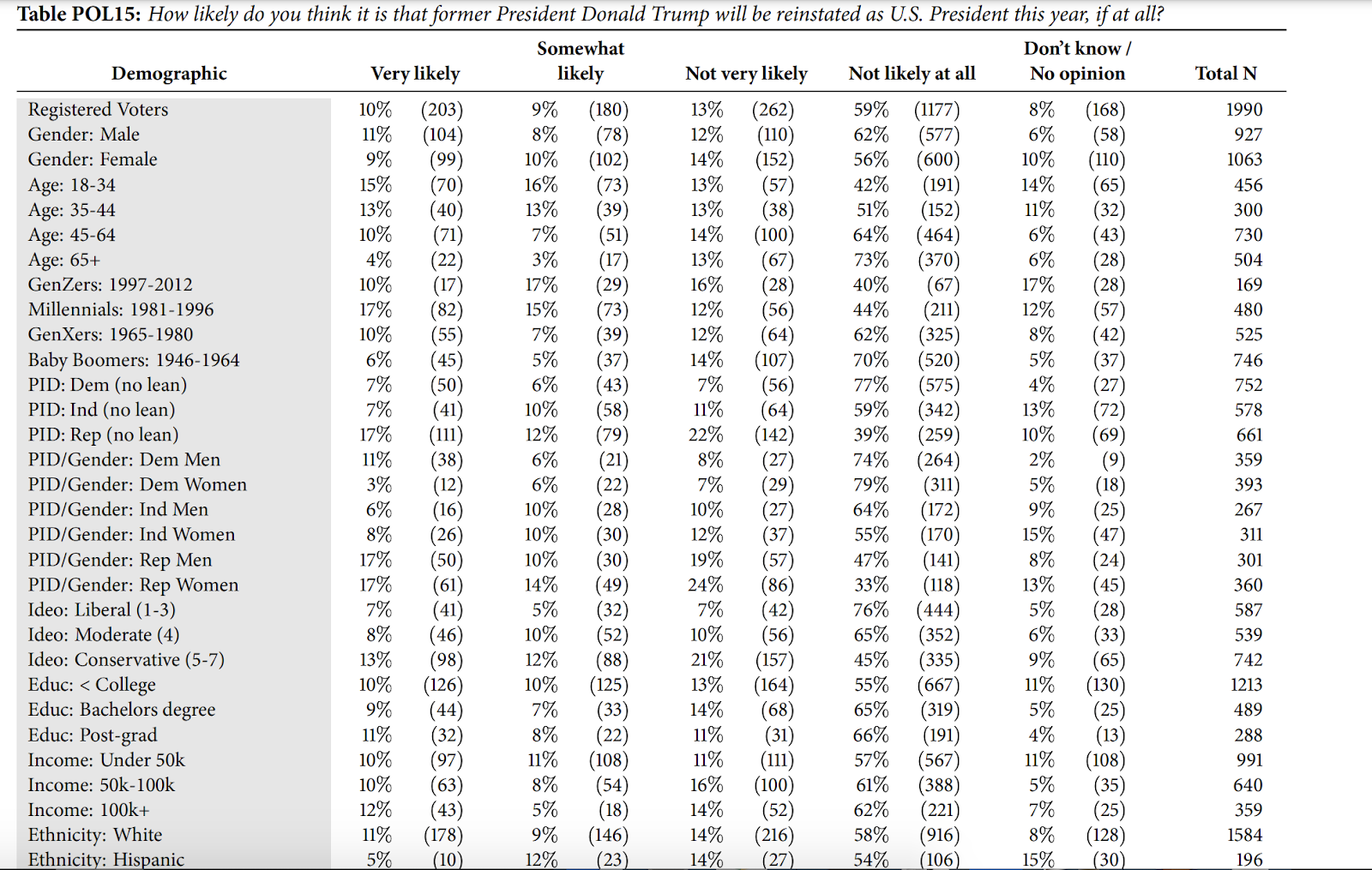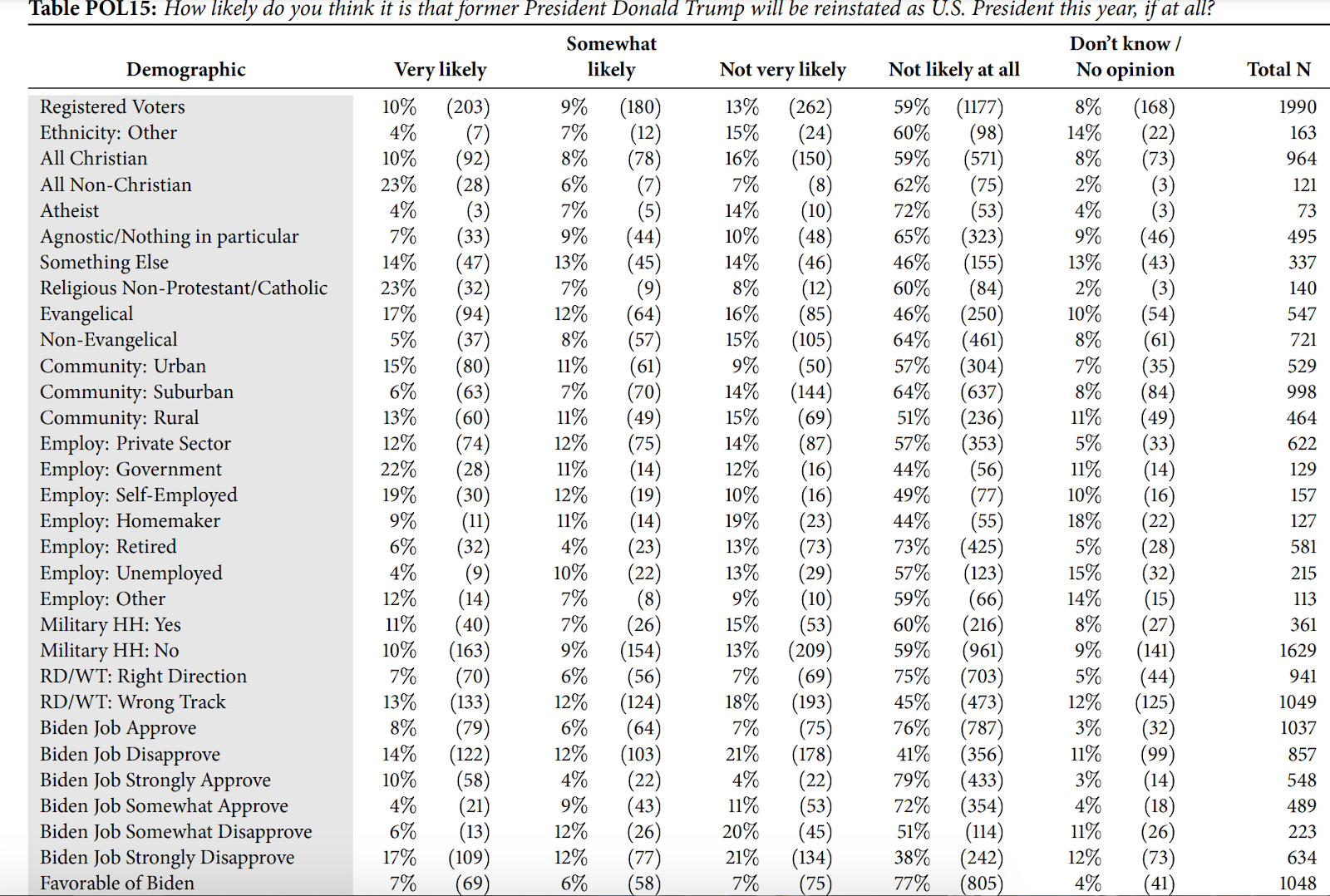Campaign Quick Hits
Losers’ Table: Great data reporting from FiveThirtyEight here as former Texas Rep. Beto O’Rourke and current Florida Rep. Charlie Crist try once again to get elected to higher office. They’ve both lost twice, and this time isn’t looking particularly charmed either.
We looked at candidates who’ve run for U.S. Senate, governor or president after they lost just one election and then tried to run again and found that since 1998, only 33 of 121 of them have managed to win higher office after having lost once. Losses transcended political parties, too, with 53 Democrats and 36 Republicans failing in their second attempt … But after two failed bids, the numbers get even worse. 4 Just 20 people have run for U.S. senator, governor or president after losing two consecutive elections. And only one, Louisiana Sen. John Kennedy, who won a 2016 runoff race after losing two previous Senate races, was successful … In other words, history doesn’t bode well for O’Rourke and Crist.
Worth Your Time: Audrey went to Arizona and what she found was—well—different. Here’s her write up of the “forensic audit contesting the victories of Joe Biden and Democratic Sen. Mark Kelly” that is currently underway. They’re nearly through all the ballots, but even the auditors don’t seem to know what their plan is after this—even if they do claim to find evidence of widespread fraud.
As Randy Pullen, former chairman of the Arizona Republican Party and treasurer of the Republican National Committee and current Maricopa County audit liaison, told Audrey, “If it turns out that, you know, we find 12,000 ballots that were somehow changed, one way or another—and I’m not saying we will—which means that could result in a change in the result of the election, you know, that’s, I have no idea. I’m not a lawyer. Whether they can go to court and overturn the election in the state—I don’t know.”
The Great Reinstatement Phenomenon
Obviously, there is no constitutional provision that allows the ‘first runner up’ in a presidential election to take over if the winner is unable to discharge his duties. And yet. Politico/Morning Consult asked Republican registered voters “How likely do you think it is that former President Donald Trump will be reinstated as U.S. President this year, if at all?” They found that 17 percent of Republicans thought it was “very likely” and an additional 12 percent thought it was “somewhat likely.” So what’s going on?
I have a few theories. First, there is obviously some percentage of people who truly believe in the sort of wackadoodle theory that Trump will be named president again in August by the Supreme Court because of fraud in the 2020 election. But I think that percentage is actually quite small. Second, there are another set of people who answer a different question than the one the pollster is asking. This set of people were answering such questions as “Do you want Trump to be reinstated?” or “Do you think the 2020 election was rigged against Trump?”
And lastly, and maybe most importantly, polls like this have a lot of noise. I’m including a screenshot of the crosstabs for this question so you can see the noise too.


Note a few other headlines that could have been written based on this data:
-
“Millennials 3 Times as Likely as Baby Boomers to Think Trump Getting Reinstated as President!”
-
“Nearly 1 in 5 Democratic Men Say Trump Could Be Back In White House This Summer!”
-
“One Third of Government Employees Think Trump Will Be Reinstalled—What Do They Know That We Don’t?”
-
“30 Percent of Non-Christians Believe Trump Coming Back”
So why don’t you see those headlines? Because they make no sense. They don’t support any preexisting narrative that you’ve been conditioned to find headlines to confirm or reject. It’s a problem with polling and it’s a problem with media coverage that uses polling.
Chris published a great piece yesterday on the politics around Democrats’ signature federal elections bill, the For The People Act. But this part bears extra emphasis because it’s exactly what we’re seeing with the reinstatement coverage:
In public policy, very seldom does an issue break through to sufficient public awareness to be subject to reliable public surveys. But even on those issues—e.g. abortion, military interventions, and immigration—a great deal depends on how pollsters phrase their questions. Unlike activists, most Americans have complex and often seemingly contradictory opinions. Doing issue research right is hard, expensive, and seldom satisfying to partisans. But doing it wrong is easy. To wit, here’s the whole question Data for Progress asked about the voting law: The For The People Act has been introduced in Congress. Supporters of the bill say it would limit the influence of big money in politics by empowering small donors; make voting easier and more secure; end gerrymandering; and give the public more information about who is lobbying our government. Opponents say it would be an overreach by the federal government and that states should control their own elections. Do you support or oppose the For The People Act?
Sheesh. Leaving aside the limited value of online-only polls, that question would be a stinker in any methodology. You ask respondents, many of whom have never heard of the bill, whether they support something that empowers “small donors,” secures elections, ends gerrymandering, and cracks down on “big money” and lobbyists. Then you tell them the only concern is states’ rights. Presto, 69 percent approval. This dishonest, Trumpian approach to public opinion is bad for the whole country, but particularly dangerous for Democrats as they contemplate ways to jam through legislation that would not only be incendiary but—in short order—very unpopular. The bill is overbroad, radically transformative, and would face serious constitutional challenges. They’d lose all of the Republicans and half of the independents for starters, and decline from there.
Republicans made a similar mistake in their understanding of polls on Obamacare. They saw legitimate numbers that showed the new health-insurance entitlement was unpopular, but failed to ask why. They would have found that while about a third or so of respondents didn’t like it for conservative reasons, another substantial group consistently felt the program did not go far enough. That’s how the GOP ended up in a humiliating defeat after 10 years opposing the law. They only saw what they wanted to see. Now, Data For Progress is making it even easier for Democrats to do the same.
Bad polling is easy to do. Bad media coverage of good polling is easy too. The Politico/Morning Consult poll is actually a good poll methodologically here. But when I see the results on the reinstatement question, I see a lot of noise and a slight uptick in reinstatement believers among Republicans. That would lead me to believe the actual number of Republicans who believe Trump will be president by the end of the year is probably in the neighborhood of 5 percent at the high end.
That’s still crazy high when you think about what we’re talking about here—but it’s nowhere near the “Poll: Majority Of Republicans Believe Trump Will Be Reinstated As President This Year” headlines either.
Just in case you needed more Chris Stirewalt in your life—and of course you do—here he is with thoughts on next week’s big primary in New York City (ranked choice voting, YAY!)
New York’s Mayoral Race a Key Indicator for Dems
The election for New York’s next mayor got underway over the weekend, with meager turnout for early voting ahead of the city’s June 22 primaries. With the city’s Republicans pretty much out of the picture, the assumption for politicos and most voters is that the blue team’s primary will pick a successor to the term-limited Democratic incumbent, Bill de Blasio.
Even if de Blasio could have run again, he would have been no shoo-in. Not only are many New Yorkers upset with his handling of the still-rising crime rate, but the then-ascendant progressive coalition that put him in office eight years ago has shattered. Here’s the lament from writer Hunter Walker in The Atlantic: “If the left loses out in the city arguably leading the socialist revival in the United States, it will be, at least in part, because of dramatic infighting fueled by rigid positions on sexual and social-justice politics, as well as the generalized failure to unify behind one candidate.” It’s a thought familiar to veterans of any kind of sectarian combat in primary elections: Gee willikers! If we could just all agree to support one candidate, we could beat the bad guys.
But this kind of thinking forgets that politicians don’t choose positions in a vacuum. It is more common that ambition leads them to their opinions more than their opinions drive their ambitions. Asking a bunch of New Yorkers to step aside for the good of Democratic Socialism sounds iffy. But the belated push from Rep. Alexandria Ocasio-Cortez, D-New York, and other socialists for former de Blasio appointee Maya Wiley is at least politically pragmatic. “We engage in the world that we have” isn’t much of a ringing endorsement. The message is that while Wiley is imperfect, she is the best way to prevent one of the mainstream candidates from winning. Yay?
Unlike the 2020 Democratic presidential primary in which left-wing divisions ran into consolidated support for a mainstream frontrunner in Joe Biden, the other side of the ballot is split, too. Tough-on-crime Brooklyn Borough President Eric Adams seems to be the frontrunner, but polls have shown strong support for 2020 presidential candidate Andrew Yang. Kathryn Garcia, the city’s former sanitation commissioner running as a pragmatic problem solver, is also in the hunt. With voters worried about crime, post-coronavirus economic recovery, schools, and city services—typical fare for municipal elections—these candidates are trying to focus on practical, quality-of-life considerations.
After 20 years of Rudy Giuliani and Michael Bloomberg, a radical re-ordering with progressive de Blasio seemed appealing. With the city’s problems piling up, a mainstream candidate seems like the safer bet for politicians looking for the key to Gracie Mansion. But there are three of them splitting up the vote. The introduction of ranked-choice voting should tell us, though, which direction New Yorkers generally want to go: farther left or back to the center lane. And just as it did with de Blasio’s victory in 2013, the result will provide clues for where the Democratic Party is heading nationally. For those of us wondering how internal Democratic fights will play out between now and the 2022 primaries, this will be a key indicator.
Editor’s Note, June 16, 2021: Due to an editing error, an earlier version of this newsletter failed to include one of the two crosstabs images above.








Please note that we at The Dispatch hold ourselves, our work, and our commenters to a higher standard than other places on the internet. We welcome comments that foster genuine debate or discussion—including comments critical of us or our work—but responses that include ad hominem attacks on fellow Dispatch members or are intended to stoke fear and anger may be moderated.
With your membership, you only have the ability to comment on The Morning Dispatch articles. Consider upgrading to join the conversation everywhere.